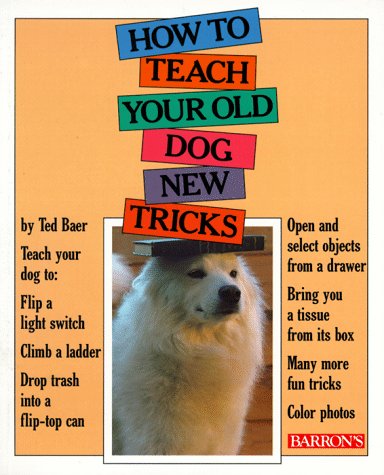
Everyone likes to see healthy, happy puppies bouncing around. How can we tell if a puppy is healthy? Usually we look at its energy level, fur, and weight. In general, people think that a healthy puppy has a round little belly. But research is beginning to show that plump puppies may be at a greater risk for certain diseases than puppies that eat a little bit less.
The idea that maybe we should restrict the amount of food that our puppies eat is a difficult idea to accept. It’s automatic for us to try to feed puppies (and babies) as much as they will eat. The idea is that because they are growing so quickly, they need as much energy (calories) as we can give them. It is true that puppies need more energy than adult dogs. But too much of anything is a bad thing, and this is true for energy as well.
Recent research has shown that puppies that are fed a calorie-restricted diet are at a lower risk of developing certain diseases. Various researchers cannot agree on why this is true. It may be due to the excess calories. Or it could be due to too much of certain minerals like calcium. Perhaps the problem is that the puppies grow too quickly. Even though veterinarians cannot agree on why feeding puppies too much is a problem, they certainly agree that it is a problem.
Not all breeds are at the same risk of getting diseases related to ‘over-feeding’. The most susceptible dogs are large-breed puppies that eat a lot (for example, Labrador retrievers). Some puppies are hard to keep weight on, and will generally not have this problem.
There are a few diseases that are more common in over-fed puppies, and we will mention two here. Osteochondrosis (OC) is a disease where the cartilage in joints does not mature properly. Pieces of cartilage can break off of the joint surface and cause joint pain in young animals. It often takes surgery to fix OC, and these dogs are at a greater risk for developing arthritis early in their lives. A calorie-restricted diet has been shown to reduce a dog’s risk for OC.
Wobblers syndrome is a group of diseases that affect the vertebrae in the neck. It is called Wobblers because in this disease, the spinal cord is squished inside of abnormal vertebrae. This affects the nerves that travel from the brain to the legs. The dog develops problems walking and has a ‘wobbly’ gait. The majority of dogs with Wobblers need surgery. A calorie-restricted diet has been shown to reduce a dog’s risk for Wobblers syndrome.
Keep in mind that these diseases all have more than one cause. Calorie-restriction will not prevent any of these diseases, it just reduces the probability that a dog will develop the disease. Other factors, such as level of exercise, genetics, and the environment that the dog lives in can greatly change the risk of your dog developing one of these diseases. Therefore, calorie-restriction can be used in certain dogs to help reduce the likelihood of certain diseases, but it will not totally prevent any disease.
Even though you now know that a restricted diet may be a good idea for certain puppies, you may be afraid of under-feeding your puppy. If you are interested in keeping your puppy on a calorie-restricted diet, it is very important that you work closely with your veterinarian to make sure you are feeding the appropriate amount and type of food. Your puppy should always be on a veterinarian-recommended puppy food, not adult food. As your puppy grows, you must frequently change the amount of food you are feeding it. Your veterinarian will help you keep your puppy at a healthy weight by regularly weighing your puppy and evaluating its body condition (how much fat it has).
Will restricted feeding harm the puppy? If this feeding program is done properly, your puppy will not have any health problems related to the restricted-energy feeding. Your puppy will not starve. It will get enough energy to grow without getting excess energy. There is some disagreement over whether or not the puppy will grow slower if it is fed a restricted diet. But most people agree that even if the puppy grows slower, it will still eventually reach the same weight as a puppy that is not on a restricted diet.
Feeding calorie-restricted diets to puppies is a fairly new concept in veterinary medicine. There is scientific evidence that feeding a restricted diet to a puppy may reduce its risk for certain diseases, such as osteochondrosis and Wobblers syndrome. Not all dogs will benefit in the same way from a restricted diet. The dogs that will benefit the most are large-breed puppies that tend to put weight on easily. If you own a breed of puppy that is genetically at a higher risk of developing certain diseases, you may want to talk to your veterinarian about starting a calorie-restricted diet.
 Redecorating For Your Dog- How To Make Your Home More Dog Friendly
How To Make Your Home More Dog Friendly
I know that I would
Redecorating For Your Dog- How To Make Your Home More Dog Friendly
How To Make Your Home More Dog Friendly
I know that I would
 Scottish Terrier Breeder Interview: Cindy Cooke Tells Us About Scotties
Scottish Terrier Breeder Interview
Cindy Cooke has been wor
Scottish Terrier Breeder Interview: Cindy Cooke Tells Us About Scotties
Scottish Terrier Breeder Interview
Cindy Cooke has been wor
 Looking for a Friend: Why the Boxer Might Be Perfect For You
The Typical Greeting of a Boxer
Looking for a Friend: Why the Boxer Might Be Perfect For You
The Typical Greeting of a Boxer
 Top 10 Dogs for Apartment Living - Ten dog breeds that do well in apartments
The Top 10 Dogs for Apartment Living
“What dog will d
Top 10 Dogs for Apartment Living - Ten dog breeds that do well in apartments
The Top 10 Dogs for Apartment Living
“What dog will d
 How To Teach Tricks To Older Dogs
Credit: Dagnyg via Flickr
How To Teach Tricks To Older Dogs
Credit: Dagnyg via Flickr
Copyright © 2005-2016 Pet Information All Rights Reserved
Contact us: www162date@outlook.com